Background
Kim Sterelny was born on November 11, 1950. He is a son of Igor Alexander Sterelny and Joyce Irons Sterelny, maiden name Lawrence.


2020 - 2023
For 2020-2023, Kim Sterelny is elected as the First Vice President of the Division for Logic, Methodology and Philosophy of Science and Technology of the International Union of History and Philosophy of Science and Technology.
2018
The Celebration of Kim Sterelny's ARC Laureate Project on the Origins of Social Inequality, Hierarchy, and Social Complexity.
Kim Sterelny, educator, philosopher, author.
Kim Sterelny, educator, philosopher, author.
Kim Sterelny, educator, philosopher, author.
Kim Sterelny and Adrian Boutel.
Kim Sterelny is a member of the Australian Academy of the Humanities.
Kim Sterelny was the president of the Australian Association of Philosophy in 2000-2001.
Sydney, New South Wales, Australia
Kim Sterelny earned a Bachelor of Arts and a Doctor of Philosophy from Sydney University.
For 2020-2023, Kim Sterelny is elected as the First Vice President of the Division for Logic, Methodology and Philosophy of Science and Technology of the International Union of History and Philosophy of Science and Technology.












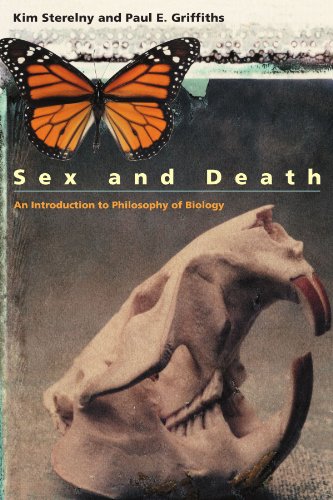
(In this accessible introduction to the philosophy of biol...)
In this accessible introduction to the philosophy of biology, Kim Sterelny and Paul E. Griffiths present both the science and the philosophical context necessary for a critical understanding of the most exciting debates shaping biology today. The authors, both of whom have published extensively in this field, describe the range of competing views - including their own - on these fascinating topics.
http://www.amazon.com/gp/product/0226773043/?tag=2022091-20
1999
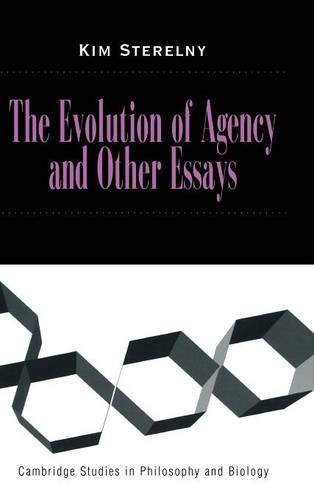
(This book presents a collection of linked essays written ...)
This book presents a collection of linked essays written by one of the leading philosophers of biology, Kim Sterelny, on the topic of biological evolution. The first half of the book explores most of the main theoretical controversies about evolution and selection, while the second half applies some of these ideas in considering cognitive evolution. These essays, some never before published, form a coherent whole that defends not just an overall conception of evolution, but also a distinctive take on cognitive evolution.
http://www.amazon.com/gp/product/0521642310/?tag=2022091-20
2001
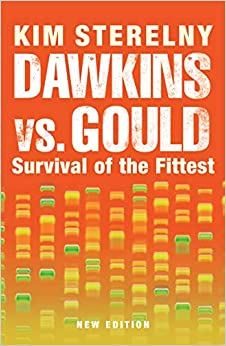
(Over the last twenty years, Richard Dawkins and Stephen J...)
Over the last twenty years, Richard Dawkins and Stephen Jay Gould have engaged in a savage battle over evolution, which continues to rage even after Gould's death in 2002. Kim Sterelny moves beyond caricature to expose the real differences between the conceptions of evolution of these two leading scientists. He shows that the conflict extends beyond evolution to their very beliefs in science itself; and, in Gould's case, to domains in which science plays no role at all.
https://www.amazon.com/Dawkins-vs-Gould-Survival-Fittest/dp/1840467800/ref=sr_1_7?dchild=1&keywords=kim+sterelny&s=books&sr=1-7
2001
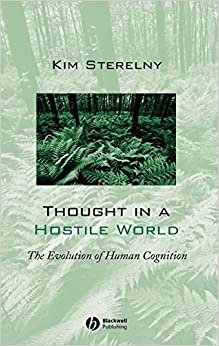
(Thought in a Hostile World is an exploration of the evolu...)
Thought in a Hostile World is an exploration of the evolution of cognition, especially human cognition, by one of today's foremost philosophers of biology and of mind. It presents a set of analytic tools for thinking about cognition and its evolution, and offers a critique of nativist, modular versions of evolutionary psychology, rejecting the example of language as a model for thinking about human cognitive capacities.
https://www.amazon.com/gp/product/B000VA4SCK/ref=dbs_a_def_rwt_hsch_vapi_taft_p1_i2
2003
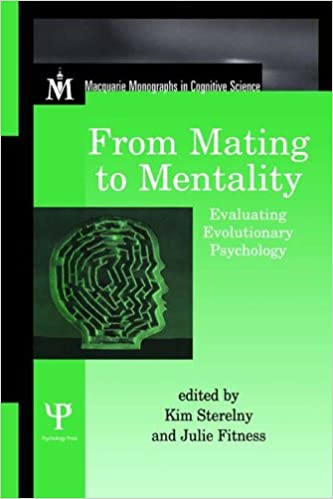
(Covering a range of topics, from the evolution of languag...)
Covering a range of topics, from the evolution of language, theory of mind, and the mentality of apes, through to psychological disorders, human mating strategies and relationship processes, this volume makes a timely and significant contribution to what is fast becoming one of the most prominent and fruitful approaches to understanding the nature and psychology of the human mind.
https://www.amazon.com/Mating-Mentality-Evaluating-Evolutionary-Psychology-ebook/dp/B000OT7YVK/ref=sr_1_17?dchild=1&keywords=kim+sterelny&s=books&sr=1-17
2003
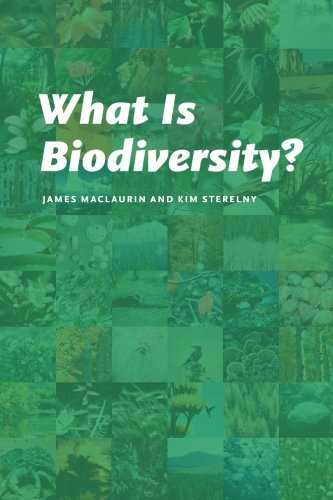
(Arguing that we cannot make rational decisions about what...)
Arguing that we cannot make rational decisions about what it is to be protected without knowing what biodiversity is, James Maclaurin and Kim Sterelny offer in What Is Biodiversity? a theoretical and conceptual exploration of the biological world and how diversity is valued. Here, Maclaurin and Sterelny explore not only the origins of the concept of biodiversity but also how that concept has been shaped by ecology and more recently by conservation biology. They explain the different types of biodiversity important in evolutionary theory, developmental biology, ecology, morphology, and taxonomy and conclude that biological heritage is rich in not just one biodiversity but many.
http://www.amazon.com/gp/product/0226500810/?tag=2022091-20
2008
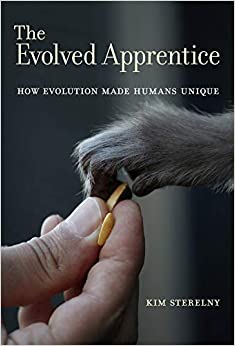
(In The Evolved Apprentice, Kim Sterelny argues that the d...)
In The Evolved Apprentice, Kim Sterelny argues that the divergence stems from the fact that humans gradually came to enrich the learning environment of the next generation. Humans came to cooperate in sharing information and to cooperate ecologically and reproductively as well, and these changes initiated positive feedback loops that drove us further from other great apes. Sterelny develops a new theory of the evolution of human cognition and human social life that emphasizes the gradual evolution of information-sharing practices across generations and how these practices transformed human minds and social lives.
https://www.amazon.com/Evolved-Apprentice-Evolution-Humans-Lectures/dp/0262016796
2012
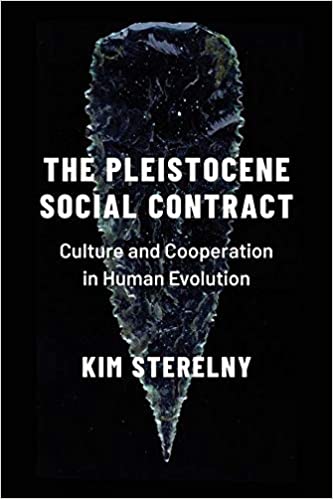
(Kim Sterelny here builds on his original account of the e...)
Kim Sterelny here builds on his original account of the evolutionary development and interaction of human culture and cooperation, which he first presented in The Evolved Apprentice (2012). Sterelny sees human evolution not as hinging on a single key innovation, but as emerging from a positive feedback loop caused by smaller divergences from other great apes, including bipedal locomotion, better causal, and social reasoning, reproductive cooperation, and changes in diet and foraging style. He advances this argument in The Pleistocene Social Contract with four key claims about cooperation, culture, and their interaction in human evolution.
https://www.amazon.com/gp/product/0197531385/ref=dbs_a_def_rwt_hsch_vapi_taft_p1_i6
2021
Kim Sterelny was born on November 11, 1950. He is a son of Igor Alexander Sterelny and Joyce Irons Sterelny, maiden name Lawrence.
Kim Sterelny studied philosophy at Sydney University and earned a Bachelor of Arts in 1972 and a Doctor of Philosophy in 1977.
In 1973-1975, Kim Sterelny worked as a part-time tutor in the philosophy department at Sydney University. In 1978, he was a part-time lecturer in the philosophy department at New South Wales University of Technology (now the University of New South Wales). In 1976, he was a tutor in the philosophy department, and in 1979-1981 - a lecturer in linguistics division at La Trobe University. In 1982, Sterelny was a lecturer in the traditional and modem philosophy department, and in 1983 - a tutor at Sydney University. In 1983-1987, he was a research fellow, and then a senior research fellow in the philosophy department at Australian National University, Research School of the Social Sciences; in 2000-2001, he was a part-time senior research fellow at the university, becoming a full professor in 2002. In 1988-1999, Sterelny was a reader, and in 2000 became a personal chair in the philosophy department at Victoria University of Wellington.
Kim Sterelny visiting appointments include a visiting professor in the philosophy department, 1986-1987, at the University of Maryland; a visiting professor in the philosophy department, 1990, at Simon Fraser University; a visiting professor in the philosophy, humanities, and social sciences department, 1996, 2002, at California Institute of Technology.
Kim Sterelny's research interests have always been in the border areas between philosophy and the sciences; most of his research and graduate supervision has been in philosophy of biology and the philosophy of the cognitive sciences. In the last decade and a half, he has been particularly interested in human evolution, and in understanding the evolution of the distinctive features of human social life, and of the cognitive capacities that make that life possible. He has articulated his sometimes controversial theories in his many writings.
Assessing The Representational Theory of Mind: An Introduction for Choice, reviewer C. J. Shields hailed the work as "an excellent introduction for the serious student" and noted that "unlike more standard introductions to mind-body relations...[The Representational Theory of Mind] pushes a partisan line."
Kim Sterelny and University of Sydney colleague Paul E. Griffiths applied a physicalist rationale in the writing of their provocatively titled textbook, Sex and Death: An Introduction to Philosophy of Biology. Reviewer Daniel Albert, writing in the journal Perspectives in Biology and Medicine, commented that Sex and Death is "an engaging and relatively accessible version of modem philosophy of biology told by two philosophers steeped in their discipline and knowledgeable about a wide range of interesting avenues in the modem science of biology."
Dawkins vs. Gould: Survival of the Fittest attempts to explain the roots of the intellectual "punch-up" between star biologists Richard Dawkins and Stephen Jay Gould. Dawkins, an "ethologist" and the author of such books as The Selfish Gene and The Blind Watchmaker, espouses a view of human evolution as a struggle between competing genes. "Ethology aims to understand the adaptive significance of particular behavioral patterns," Sterelny explained. Meanwhile, paleontologist Gould, who is known for his popular books, for example, Rock of Ages and Wonderful Life, takes a wider view, explaining evolution as a competition between competing organisms. "The two men have different views on evolution, and they and their allies have engaged in an increasingly public, and increasingly polemical, exchange," Sterelny wrote.
Sterelny has also written extensively about the philosophy of psychology. He is the author of many important papers in this area, including widely anthologized papers on group selection, meme theory, and cultural evolution such as Return of the Gene (with Philip Kitcher), Memes Revisited, and The Evolution and Evolvability of Culture.
Kim Sterelny is a contributor to several textbooks and scholarly journals, including the Journal of Philosophy, Australasian Journal of Philosophy, Philosophical Studies, New Zealand Science Review, and Philosophical Quarterly. He is an editor of Monist, special issue on philosophy of biology; of Biology and Philosophy since 2001; co-editor, with Rob Wilson, of MIT series on the philosophy of psychology and biology. In 2001, he became a member of the editorial board of Philosophy of Science.
(Covering a range of topics, from the evolution of languag...)
2003(Arguing that we cannot make rational decisions about what...)
2008(Kim Sterelny here builds on his original account of the e...)
2021(In The Evolved Apprentice, Kim Sterelny argues that the d...)
2012(Over the last twenty years, Richard Dawkins and Stephen J...)
2001(Thought in a Hostile World is an exploration of the evolu...)
2003(This book presents a collection of linked essays written ...)
2001(In this accessible introduction to the philosophy of biol...)
1999Kim Sterelny is an ex-leftie, who has no active political engagement.
According to Kim Sterelny, philosophers do two different things, and one of the things that they do is methodological. They reflect upon the methods of the natural sciences. He thinks, when someone says "I do philosophy of science," especially if they said "I do philosophy of science 20 years ago or 30 years ago," what they probably would have been doing is that in the last 10 to 15 years, there's been a different kind of philosophy of science, something that always existed, but was sort of more peripheral, has become more central and that is to see philosophy as having a kind of integrative of the role. So one of the things about the sciences is a relentlessly forced specialization and sub-specialization and even further sub-specialization because the literature in any one area becomes so vast, the technical demands of experimentation and so on become so intense that it becomes more and more difficult for someone who is an active practitioner of science, who's actually kind of generating the data or building the formal models to do - to also integrate across different fields.
Sterelny says this integrative role is becoming more and more important in the philosophy of science and that requires people like him who are prepared to kind of immerse themselves in the empirical literature of different fields and become, if not fluent in them, at least slightly more than a broken L2 speaker of them. A person should do a little bit of pidgin biology and pidgin linguistics in order to try and put together overall pictures; assemble from the different fragments that are provided by the different sciences something like an integrative overview and that both give an overall picture, but it also generates new questions. As a person goes from the microscale to the mesoscale to the macroscale, new issues and new problems emerge. So those are the two main areas in which Sterelny thinks philosophers have contributed historically, more the first, on the methodological issue, now increasingly this kind of integrative overviewing, trying to put together a synthesized story from the various bits and pieces that the different sciences provide. And Kim Sterelny's work has been much more of the second kind than the first kind.
Quotations: "The development of evolutionary biology since 1858 is one of the great intellectual achievements of science."
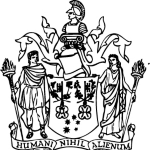
Australian Academy of the Humanities , Australia

Kim Sterelny was the president of the Australian Association of Philosophy in 2000-2001.
Australian Association of Philosophy , Australia
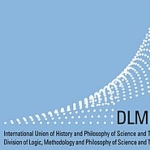
For 2020-2023, Kim Sterelny is elected as the First Vice President of the Division for Logic, Methodology and Philosophy of Science and Technology of the International Union of History and Philosophy of Science and Technology.
International Union of History and Philosophy of Science and Technology
2020 - 2023
Kim Sterelny's life partner is Melanie Claire Nolan, a historian. He has one child.
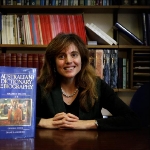
Melanie Claire Nolan is a New Zealand born labour historian, who researches changes in work and workers, connecting labour and class, gender and women, and ethnicity in 20th century Australian and New Zealand history. She taught for 16 years at Victoria University of Wellington, becoming Professor of History. Between stints at university, she worked in the New Zealand public service, including the State Services Commission, the Treaty Issues Unit of the Crown Law Office, and the Historical Branch, Department of Internal Affairs. In 2008, she was appointed a Professor of History, a Director of the National Centre of Biography and General Editor of the Australian Dictionary of Biography at the Australian National University.

Paul E. Griffiths is an Australian philosopher of science with a focus on biology and psychology. He heads the Theory and Method in Bioscience project node of the Charles Perkins Centre, a major new initiative at Sydney University focused on interdisciplinary research into obesity, diabetes, and cardiovascular disease. He served as Associate Academic Director for Humanities and Social Sciences while the Centre was being established and continues to serve on the Executive Committee as Domain Leader for Society and Environment.
